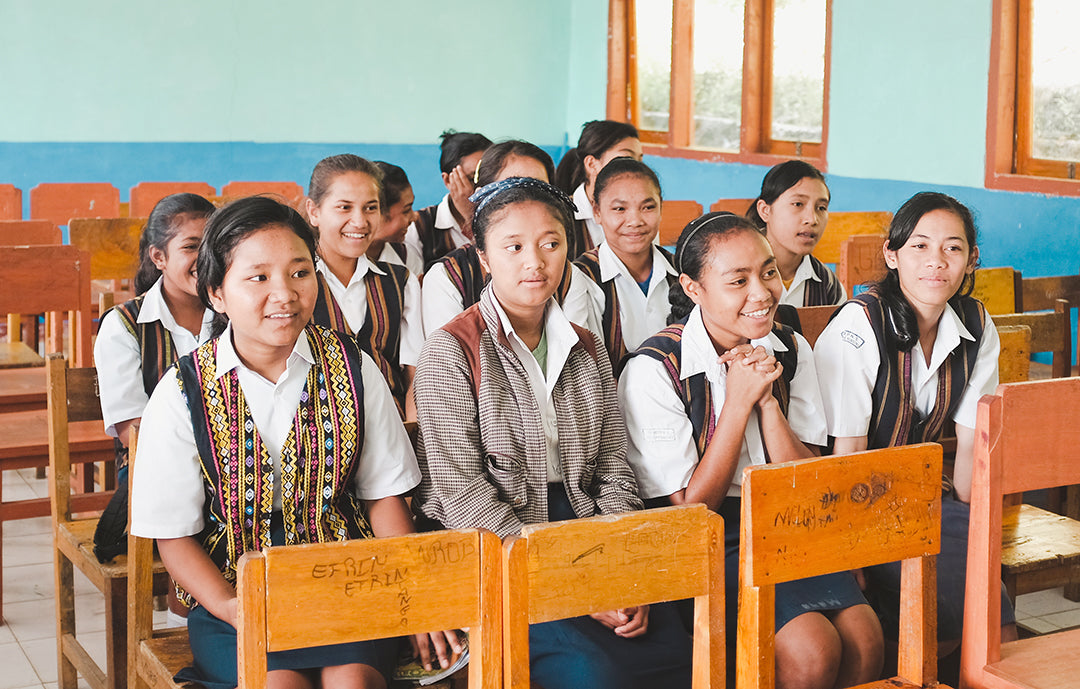
Unlocking Potential: How Period Positive Schools Facilities can Empower Indonesian Students
by: Febby Clarissa
Menstruation, something that happens to half the world's people, is somehow still kept quiet and looked down upon at school, especially in a country like Indonesia where conservative views and cultural taboos are common. Not knowing enough and being exposed to the myths told about periods are the big problems faced by the students. This article explores why period education and facilities matter in Indonesia, showing how we can make students feel better and improve their learning process.
Period education matters.
In the current situation, our education system focuses on explaining knowledge about periods exclusively in biology lessons. While these lessons provide insights into the biological mechanics of menstruation, a significant gap still exists in addressing the useful spectrum of period management. Students are not exposed to a holistic understanding of how to effectively navigate the various dimensions of menstruation, encompassing not only the physiological intricacies but also the social and emotional aspects. As a result, every sixth girl in Indonesia refrains from attending school because of menstruation based on the latest UNICEF report. This reluctance stems from insufficient sanitation facilities within schools, the desire to keep their menstrual cycle private from peers, and the common unfavorable perception about menstruation.
By introducing comprehensive menstrual education in schools, we offer students (boys and girls) a valuable chance to gain a deep understanding on menstrual management, which includes puberty, period products, hygiene management, menstrual cycle, and how to help friends at schools to feel safe and supported when they are on period. The significance of this knowledge extends beyond just practicality; it profoundly impacts both young girls and boys in their educational journey.
For girls, comprehensive menstrual education inspires a newfound confidence that enables them to engage in their academic pursuits without disruption or discomfort. Armed with enough knowledge, product provision, and support from teachers and peers, they can navigate their menstrual cycles better, allowing them to concentrate on their studies and personal growth. Furthermore, this initiative reaches beyond gender boundaries, as boys also benefit from the acquired understanding. By fostering empathy and compassion, boys contribute to creating a supportive and inclusive atmosphere at school, championing equality and normalizing conversations about puberty and menstruation.
A Guide to Implementing Period Education and Creating Supportive, Menstruation-Friendly Facilities in Schools
Knowing that period at school matters, here are the steps to build Period Positive schools for young girls and all people with periods:
To initiate this process, consider organizing one-hour sessions that involve both boys and girls. The goal of these sessions is to build general awareness and foster an open dialogue, working to dispel the idea that menstruation is a taboo topic. By creating an environment where conversations about menstruation are seen as normal and natural, we can set the stage for greater understanding and empathy to flourish. This initial action enables every student, irrespective of gender, to acknowledge and value the inherent and vital nature of menstruation within the spectrum of human life.
If you ever need help with experienced experts, remember that Perfect Fit is here for you. Together, we can enhance learning experience and promote a more informed perspective on menstruation within educational settings.
Encourage open dialogue where students feel comfortable sharing their experiences, such as instances of unusual pain or unaddressed questions they may hesitate to discuss with their parents. Promote an environment of understanding and empathy, fostering conversations about any menstruation and puberty related issues that could potentially impact their ability to focus on their studies. Emphasize that seeking help in this regard is neither a sign of weakness nor a source of shame, but rather a proactive step towards holistic well-being and academic success.
It is important that the restroom facilities at schools should be designed with utmost comfort, catering to the needs of students, and aligned with the prerequisites of effective menstrual management. Placing menstrual products within the restroom is a crucial step to underscore the idea that menstruation is a natural process, distinct from an ailment. This approach aims to promote the understanding that menstruation is a normal bodily function and not a condition that confines individuals to the medical room. By ensuring the accessibility of these products in restrooms, we contribute to fostering an environment that recognizes and respects the natural cycle of menstruation while providing students with the necessary tools to manage it comfortably.
By putting period positivity to the fundamental educational sphere, we are not merely altering the present, but also shaping a future where taboos dissolve, and every student feels empowered to embrace their natural bodily processes without hesitation or shame. Contact us for further collaboration.
Reference:
